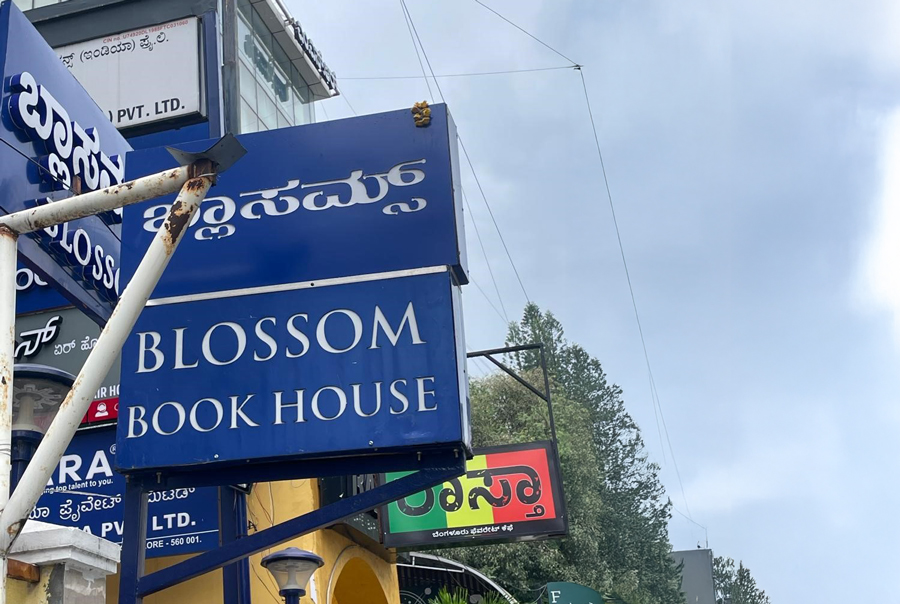Will book stores evolve as community spaces?
By Retail4Growth Team | October 22, 2024
At time when brick and mortar retail undergoessome distinct shifts, the future of book stores will depend on how well they can position themselves as interactive spaces bringing the community together, and also how well they can follow the omnichannel playbook –something their counterparts across other categories have been doing in increasing urgency.

For serious readers and book lovers, book shops have always been a delightful haven - a place that spreads the joy of new discoveries and exciting surprises. But like most other things, the manner of consuming the printed matter too underwent a transformation as technology took over and book reading moved to digital platforms. This obviously impacted book retailing as many book shops have been shutting down in recent times, a trend that not only points to the proliferation of online/digital platforms but also to the shift in reading habits.
The Digital Disruption
With the arrival of a digital transition, we now have multiple choices that go beyond physical books and bookstores. The online forum brought up platforms such as Amazon, Flipkart, and more for selling books at a discounted price, and brought forth the trend of switching to eBooks and Audiobooks. According to an article published by Deccan Herald, post pandemic sales have seen 40% shift to online purchases, 35% in-store visits and the remaining arewalk-ins who come to pass the time.
E-books have been a popular choice as an alternative since the pandemic. Reports tell that the Amazon Kindle is the third most owned device amongst consumers, with the majority aged 65+. This further reflects the move away from traditional paper books and the expected increase in devices over the coming years.
As per statistics, the projected value of E-books in 2022 was estimated at $19 billion butby 2032, it is expected to be over $33 billion. The Indian eBook market is experiencing a rapid surge in demand and was projected to generate a revenue of $165 million by 2023.3
Future of BrickandMortar Book Stores
Given these, the question looms larger over the book printing industry and therefore offline bookstores. Well, there’s good news - the future of brick and mortar bookstores is not so bleak, after all. Reports suggest that the Indian print book is predicted to reach just shy of US$12 billion by the end of 2024. India stands 5th in a global comparison in the revenue from print books, with first place taken by US, followed by China, Germany, and Japan. As the fastest growing market for English language books and print publications, all projections indicate that print books will continue to grow in high double digits in India.
A market visit by Retail4Growth, getting insights from the store owners/managers,shows that there is indeed hope for book stores.

Blossoms, the famous bookstore in Bangalore, says their footfall has been better compared to pre-Covid levels, and with their book exchange policy, customers definitely keepcoming back.
Of course, the pandemic certainly had an impact on bookstores, and many bookstores struggled to keep themselves open.Those who relied on daily sales barely managed to float above the brink of shutting down and some independent bookstores had to face their harshest realities and shut down. Even corporate owned book retailers faced the challenges. Crossword, the popular famous bookstore chain,had some of its stores shut down until the ownership changed to Agarwal Business House. From then on, it’s been a growth journey of expansion for them – opening 100+ stores across India and 15 stores across Bangalore.
The positive trend is that it’s not just bigger corporations who have been expanding. Blossoms for example opened their third branch last year and all three stores have been doing well. As K Sanjay, the owner of Select Bookstore in Bengaluru says, “Footfall has improved compared to how the initial years right after Covid were. There were days we would lock up the store in disappointment, but our loyal clientele would come up to chat and browse whenever.”
Riding high on a loyal clientele & evolving as community spaces
A loyal clientele is indeed an important aspect of book stores, but while it is a positive sign, it is no guarantee for business continuity, especially given the new pressures that offline retail businesses face today. Retailers across categories have had to relook strategies, exploring omnichannel platforms and cost-efficient plans; and for book store owners, the need is even greater.
One of the things that most bookstores have been leaning towards in recent times is the concept of community spaces - something that retailers across categories are in fact adopting. Bookstore owners today, more than ever,want their stores to be an experience that every reader wants to come back to again and again. This, combined with a mix of offline and online presence, is what most of them are counting on.
In the context of future plans, Sanjaisays, “My grandfather and father were both avid readers who opened this store for the sole reason of sharing their passion for books with everyone. Today we don’t have any plans for expansion, but recently a pair of our customers opened a WhatsApp community and asked us to post titles once a week for everyone across India.”
Indeed, creating community spaces that keepthe reading culture alive is something many book shops have been doing in Bangalore. The initiatives range from book launches and reading sessions by authors to incorporating new trends such as Lock the Box, creating WhatsApp groups, book clubs, book exchange programs, etc. Reports suggest that India’s Second Handbooks Market is projected to grow from USD 781.04 mil to USD 1411.93 mil from 2023 to 2032.4
Mukund, Store Manager at Blossoms, sums it up, “One of our unique aspects is that we allow our customers to exchange their old books for new ones here. We even do new book launches every now and then. We are currently working on our website to adopt to the online methods as well.”
Well, one thing is pretty clear- bookstores and customers are both driven by a sense of community and their common passion – books. And as along as this is strong, the future of book stores will also be strong. But this will depend on well the store spaces evolve as engaging, interactive platforms, spaces that elevate the experience and drive the community purpose forward.









Comments